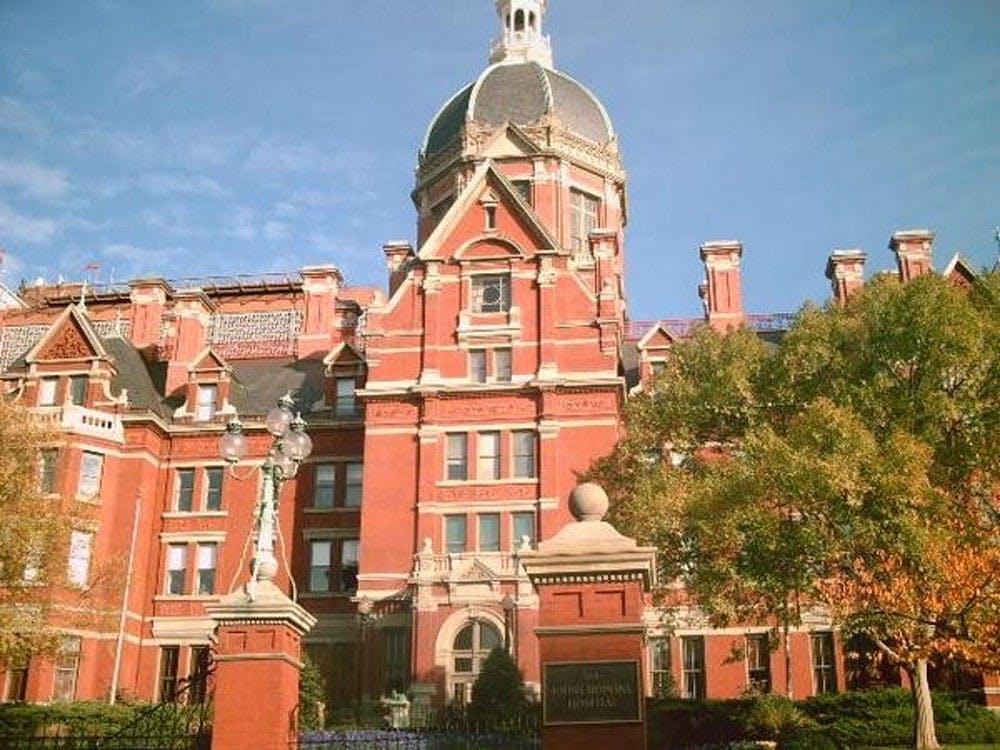Nurses at the Hopkins Hospital expressed their intent to form a union with assistance from National Nurses United (NNU) in March 2018. They claimed that they received subpar benefits and were underpaid and overworked.
Over the summer, NNU and a group of nurses filed an official complaint to the National Labor Relations Board (NLRB), claiming that the Hospital was taking active measures to prevent the nurses from organizing an official union.
NNU stated that the Hospital prevented nurses from coming into work on their days off. They also claimed that the Hospital was barring nurses from visiting workers in other departments during their breaks. The Hospital has denied the legitimacy of these complaints.
NLRB is an independent federal agency that seeks to protect workers’ rights. In an independent investigation into NNU’s claims, the Board found that the Hospital violated two federal laws regarding union protection.
On Oct. 31, The Baltimore Sun reported that the NLRB would file charges against the Hospital if it did not resolve these issues with its staff.
Physics & Astronomy Graduate Student Peter Weck wrote in an email to The News-Letter that many graduate students at Hopkins support the nurses’ efforts — particularly because members of Teachers and Researchers United (TRU) are similarly working toward forming a union.
“As grads at Hopkins work to strengthen our own union, it’s vital that we continue to support and stand in solidarity with the nurses in their struggle,” he wrote. “When Hopkins tries to bust up unions, mistreat its workers or pursue unjust policies, the only way the community can hope to hold it accountable is by standing together.”
In an email to The News-Letter, Director of Public Relations and Corporate Communications Kim Hoppe issued a statement on behalf of the Hospital. According to the statement, the Hospital deeply respects its nurses, appreciates their hard work and respects their rights to form a union. She stated, however, that the Hospital found the nurses’ complaints unwarranted.
“We believe the union’s charges lack merit, and we respectfully disagree with the National Labor Relations Board (NLRB) Regional Office’s preliminary decision to move this matter to the next step in the process,” she wrote.
The Bureau of Labor Statistics (BLS) states that the average pay for nurses in Baltimore is $35.31 per hour. According to The Baltimore Sun, nurses at the Hospital have expressed that even after working for the Hospital for several years, they make less than the city’s average salary. Furthermore, they claimed that many of their benefits, including healthcare, have been cut in recent years.
Many workers believe that an increase in pay and benefits is crucial in withholding the Hospital’s reputation for providing prestigious medical care. According to The Sun, nurses stated that because their salaries are not as high as they would be at other institutions, they leave frequently for better paying jobs. They argue that because of this high turnover rate, patients often receive care from inexperienced workers.
Michael Busch, graduate student and member of Teachers and Researchers United (TRU), agreed with these sentiments. In an email to The News-Letter, he wrote he was pleased that nurses were taking action.
“Of course an institution like Hopkins would absolutely hate it if graduate students and nurses started their own unions. They would have to bargain with us, they would have to give us better working conditions and job security. And while I would argue that all of these things would only improve the productivity and efficiency of Hopkins workers across the board, I am sure the administration sees it as a gigantic thorn in their side,“ he wrote.
Weck echoed these sentiments. He proposed that this idea is not only applicable to nurses but to all working groups, both at the Hospital and at the other Hopkins campuses.
“The whole University stands to benefit — the nurses’ working conditions are the conditions of patient care, and similarly grad working conditions are undergrad learning conditions. Nurses and grads are both organizing unions to make this institution a better place,“ he wrote.
Busch argued that the opposition against the nurses serves as evidence for anti-union sentiments at Hopkins. However, he believes that the nurses are acting justly.
“Workers should have their right to democratically assemble and bargain for their working conditions. The only way to do this currently is through a union,” he wrote.
Hoppe expressed that nurses are an integral part of the Hospital and that it intends to create open discourse about the issues the nurses have voiced.
“We are committed to maintaining our longstanding culture of collaboration and open communication with them and with all of our employees in order to provide the highest quality of care, and we stand by our workplace practices,” she wrote.
In order for the nurses for formally establish a union, they must receive signatures from at least 30 percent of their fellow workers, which would entail 3,200 individuals at the Hospital. According to the NLRB, nurses could also officially institute a union by their employers simply recognizing them as a union.





